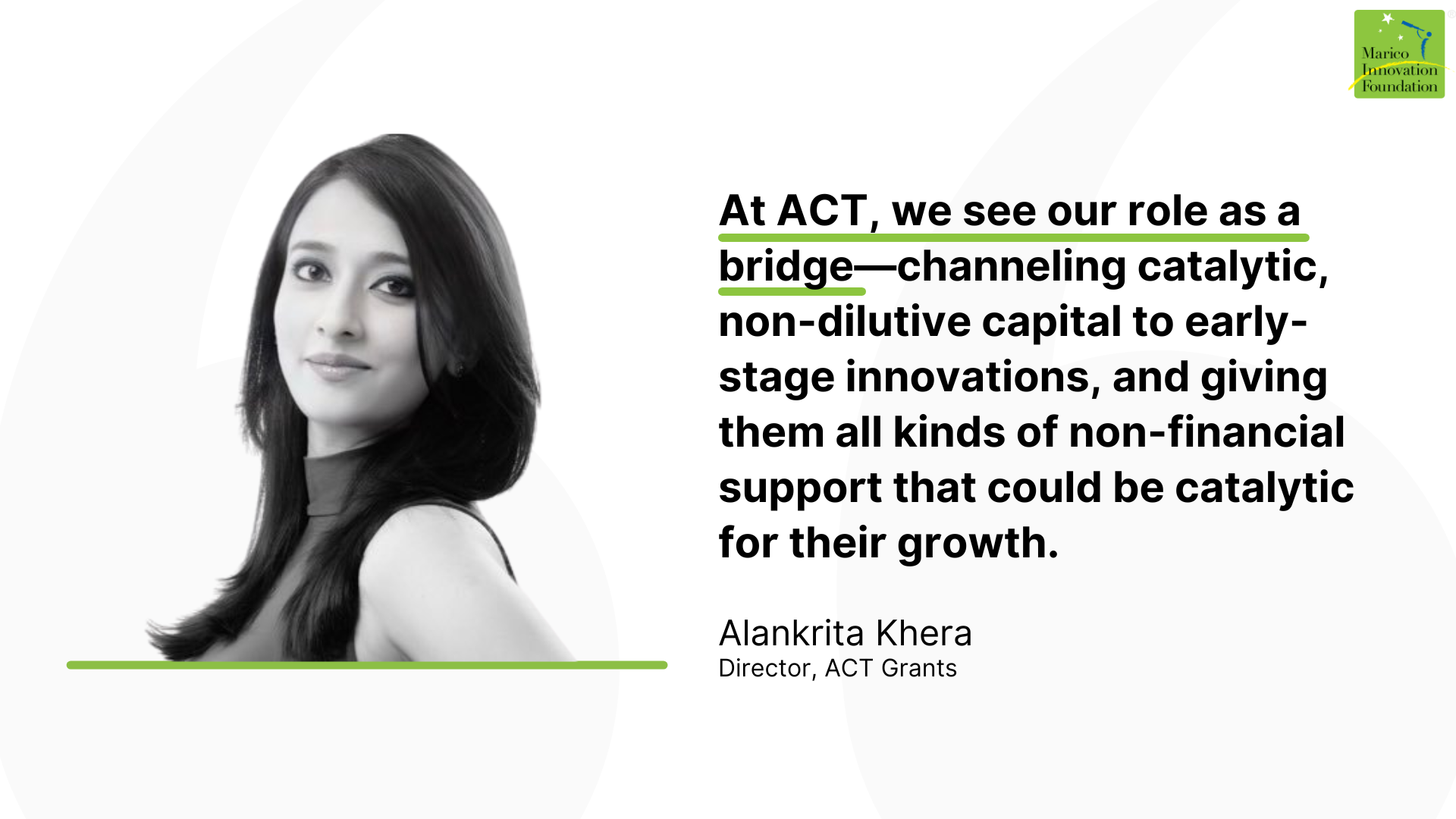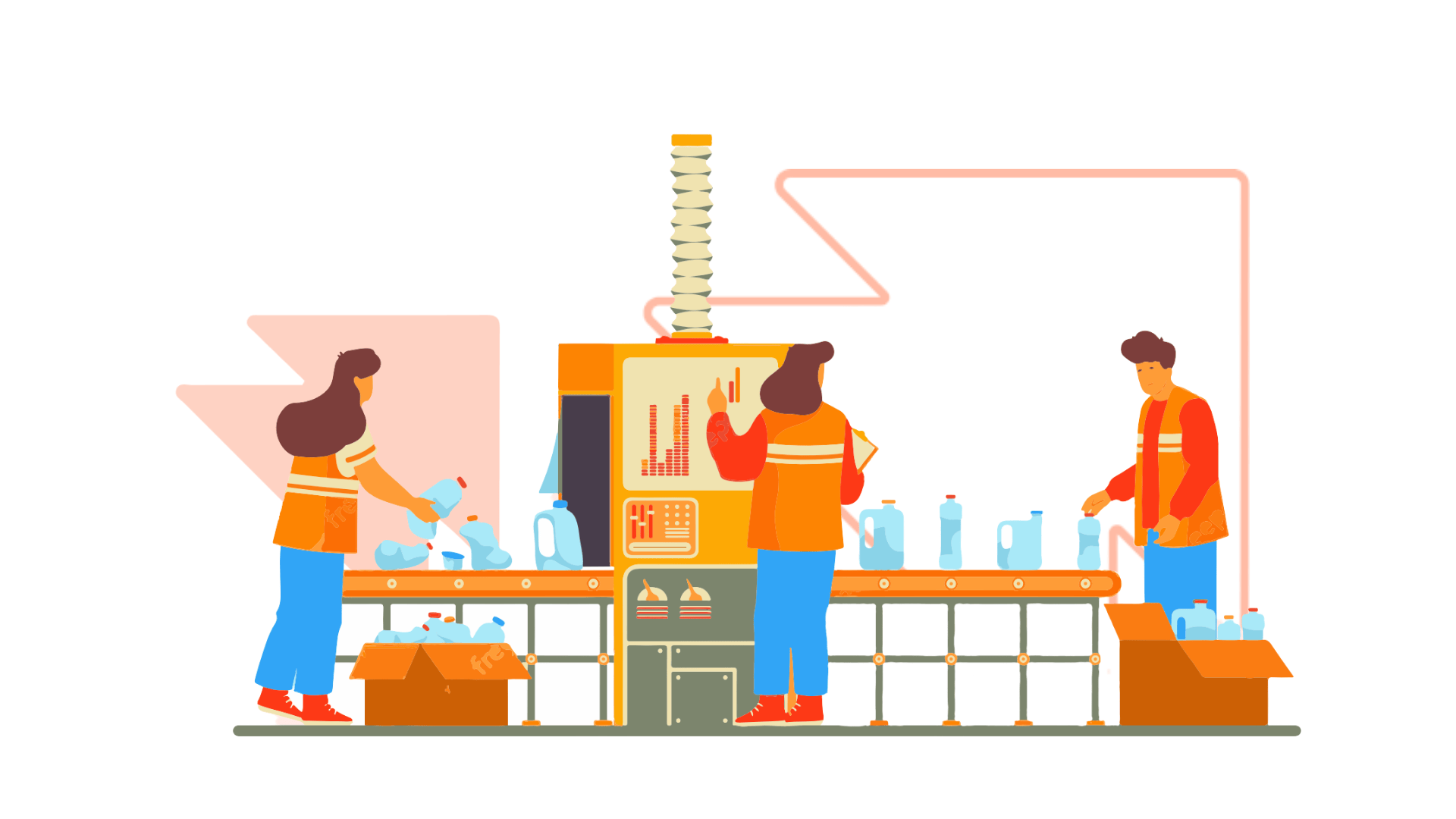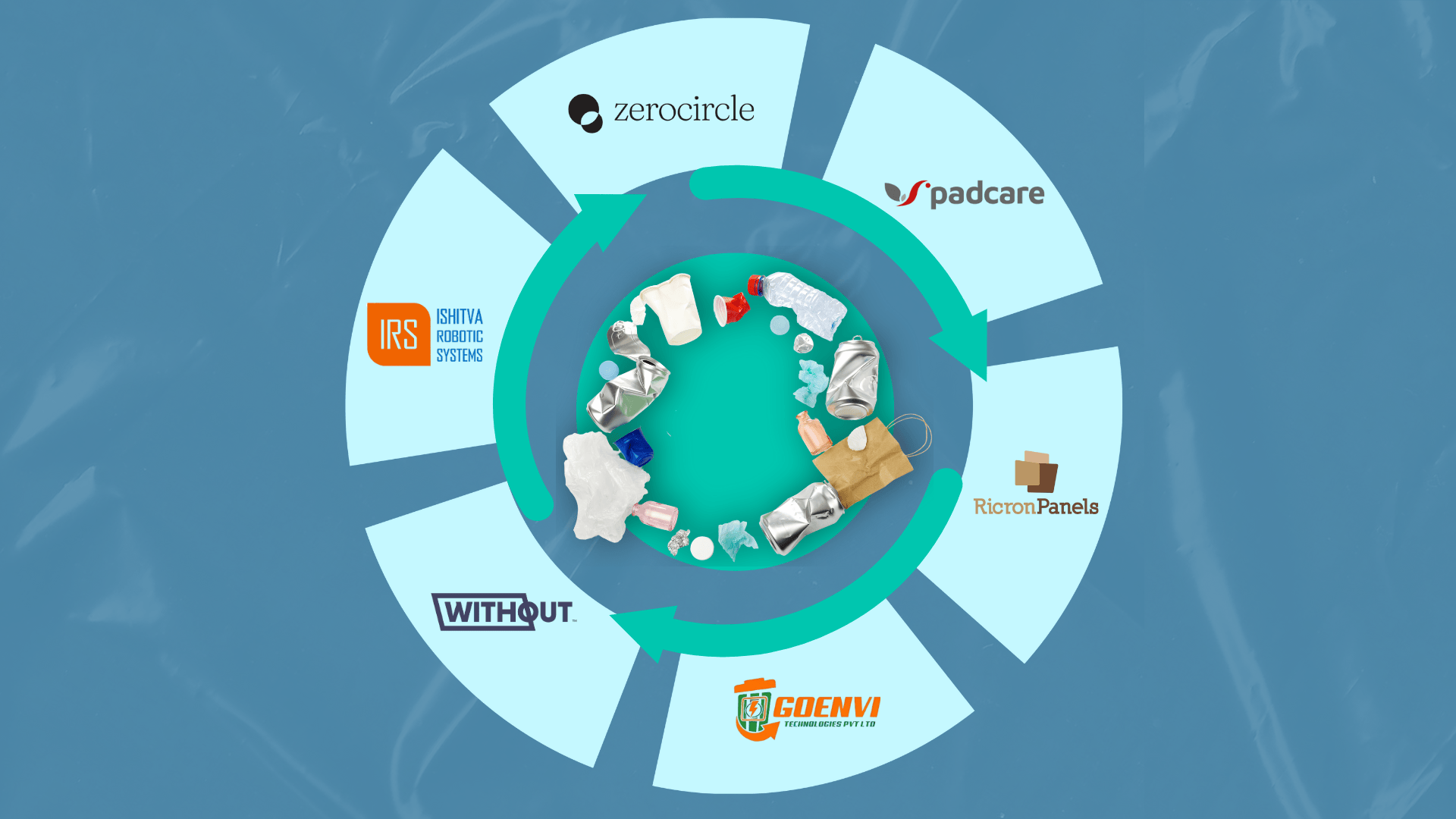India has a massive plastic waste problem, but the country’s startups are coming up with innovative solutions to tackle it. Alankrita Khera, Director and someone who helms Climate Tech Investments with ACT For Environment, has followed the journeys of several such startups and found that their success is incumbent on a lot more than capital.
ACT, a philanthropic collective launched by venture capitalists in 2020, aims to ease the journey for social-impact startups, including those focused on plastic waste management. It provides grants and support to ventures across climate, education, health, and gender inclusivity.
Working with ACT Grants, Khera has observed a growing momentum of innovation in plastic waste startups, but systemic challenges often hold them back. She sheds light on infrastructure-related changes, policy reforms, and capital-related adjustments that startups in the sector require in order to thrive.
INFRASTRUCTURE HURDLES & INNOVATION
Startups in plastic waste management are coming up with breakthrough ideas: from bioplastics and alternative materials to chemical recycling and AI-led waste sorting. Yet, scaling these innovations is another matter altogether.
According to Khera, there are persistent systemic gaps. Plastic waste startups encounter limited access to quality feedstock. This problem is further compounded by inconsistent waste segregation that is widespread in India. Furthermore, there is a lack of deployment partnerships that can serve as real-world, viable testing grounds.
Without proper infrastructure, even the best technologies struggle to prove circularity at scale.
REIMAGINING POLICY AS AN ENABLER
Khera sees a tremendous opportunity for policy to shift from gatekeeper to enabler. “Policy, in my view, can play a powerful role—not just by regulating plastic use, but by enabling innovation to evolve into long-term, scalable alternatives,” she says.
She advocates for fast-tracked clearances for emerging technologies and better access to urban and industrial pilots. “Imagine a world where promising startups can plug into existing systems more easily,” she says. She also emphasizes that frameworks like EPR (Extended Producer Responsibility) must become more inclusive, allowing startups to engage as co-creators in systemic transformation, not just as vendors.

SUPPORT BEYOND CAPITAL: WHAT STARTUPS URGENTLY NEED
Capital alone isn’t enough, especially in climate-tech. “What founders really need is capital that’s flexible and fairly risk-tolerant,” Khera says. Plastic waste startups, like many in climate-tech, operate in nascent ecosystems and require longer gestation periods to mature.
But financial support must be paired with ecosystem support. Founders need mentorship from people who understand the long arc of climate-tech innovation, which takes time, from lab to market to product-market fit.
They also need partnerships, access to pilots, i.e. opportunities to test their models in messy, real-world conditions, and collaborative ecosystems that validate and build long-term trust.
Khera mentions that while these startups are operating in very nascent ecosystems, they deliver “multidimensional returns”—both economic and environmental.
HOW ACT HELPS BUILD THE BRIDGE
At ACT, the aim, Khera says, is to act as a bridge—“We channel catalytic, non-dilutive capital to early-stage innovations and layer it with non-financial support that accelerates growth”.
This includes facilitating access to pilot environments, forming strategic partnerships, and offering guidance from experts who have walked similar paths. Ultimately, ACT seeks to help startups contribute to India’s ambitious decarbonisation goals in meaningful and scalable ways.
[The interview with Alankrita Khera, Director ACT Grants is part of MIF’s series, Ecosystem Voices to unpack the multi-layered support required by startups working in plastic waste management and climate tech. The interview has been edited for length.]








